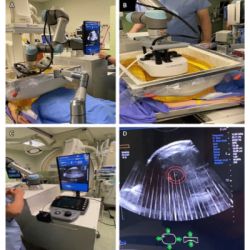The FDA has notified the public and the medical imaging community that it has received reports of two patients who received more radiation than expected from CardioGen-82 who underwent cardiac PET scans with rubidium (Rb)-82 chloride injection from CardioGen-82.
A CardioGen-82 PET scan is one of a variety of nuclear medicine scans and uses Rb-82 chloride injection to evaluate the heart. The excess radiation was due to strontium isotopes which may have been inadvertently injected into the patients due to a strontium breakthrough problem with CardioGen-82.
The FDA said that currently, the risk of harm from this exposure is believed to be “minimal, although any unnecessary exposure to radiation is undesirable.”
The estimated amount of excess radiation the two patients received is similar to that other patients may receive with cumulative exposure to certain other types of heart scans, according to the agency, which added that it would take much more radiation to cause any severe adverse health effects in patients.
Healthcare professionals should follow the required testing and quality control procedures to help detect strontium breakthrough from CardioGen-82. Other types of heart scans provide information very similar to CardioGen-82 and professionals are encouraged to consider these alternatives while FDA completes its investigation of the reported cases of excess radiation exposure.
The FDA said it is investigating the root cause of this failure with CardioGen-82 and will promptly notify the public with updates.
A full list of guidelines is available for health practitioners on the FDA website.























